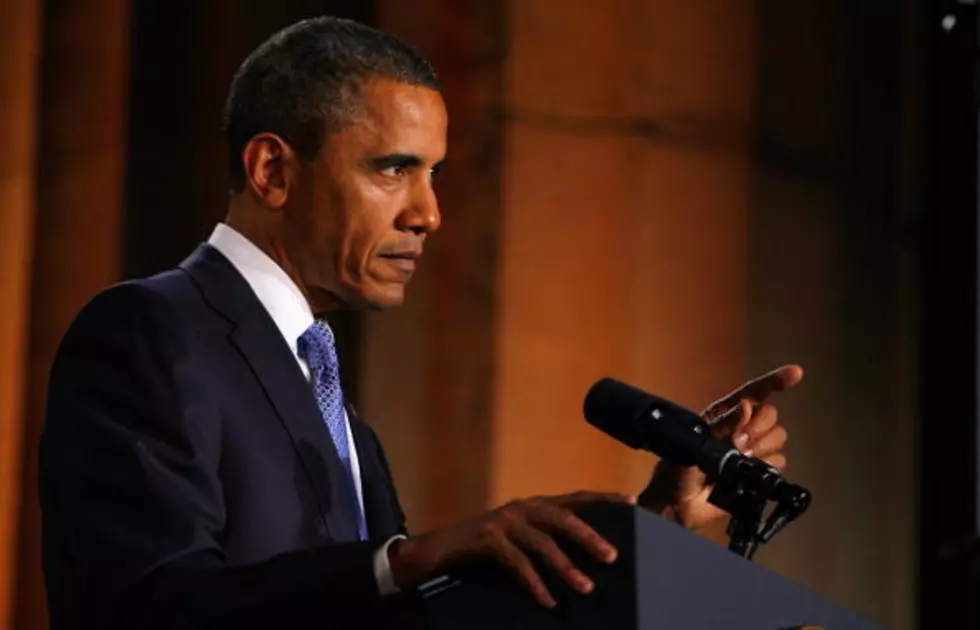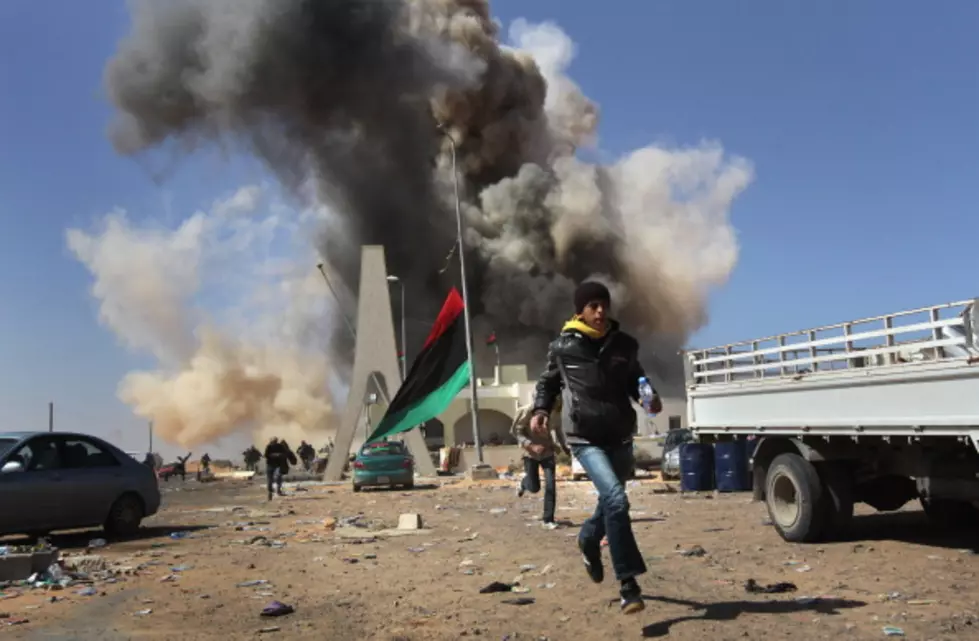
NATO’s In Charge…Quaddafi’s Forces Rally
Forces loyal to Muammar al-Qaddafi used deadly force against rebels and civilians in Misrata Wednesday, killing at least 20 people, a rebel spokesman told Reuters.
The spokesman says that Qaddafi forces are using artillery to bombard the rebel stronghold.
"Artillery bombardment resumed this morning (Thursday) and is still going on. The (pro-Qaddafi) brigades could not enter the town but they are surrounding it... Massacres are taking place in Misrata." the spokesman told Reuters by phone.
A Libyan government spokesman tells Reuters that Qaddafi and his sons will remain in the country "until the end."
"If this aggression did anything, it only rallied people around the leader and the unity of the nation," spokesman Mussa Ibrahim told Reuters. "Especially now. They see a clear enemy."
This comes as NATO assumed command of all air operations over Libya early Thursday, taking over from the U.S. NATO chief Anders Fogh Rasmussen told reporters in Stockholm that NATO's position is that "we are there to protect the Libyan people, not to arm the people."
Britain and the U.S. believe that existing U.N. Security Council resolutions on Libya could allow for foreign governments to arm the rebels, despite an arms embargo being in place.
The NATO secretary-general said he has "taken note of the ongoing discussions in a number of countries but as far as NATO is concerned ... we will focus on the enforcement of the arms embargo."
Fogh Rasmussen said the alliance assumed sole command of all air operations over Libya at 2 a.m. ET Thursday. NATO now commands the international force that has been bombarding forces loyal to the Libyan leader. A rebellion against Qaddafi's 42-year rule erupted last month, and international forces including the U.S., France and Britain stepped in March 19, just as it appeared Qaddafi was on the verge of crushing the revolt.
NATO's operational commander is warning forces attacking civilians in Libya that they would be "ill-advised" to continue such activities.
Lt. Gen Charles Bouchard, a Canadian now heading the international operation, says the transition of command from the U.S. had been "seamless with no gaps."
More From News Talk KIT

![Obama is Awesome – Iraq Versus Libya Parody [VIDEO]](http://townsquare.media/site/113/files/2011/03/images1.jpg?w=980&q=75)







